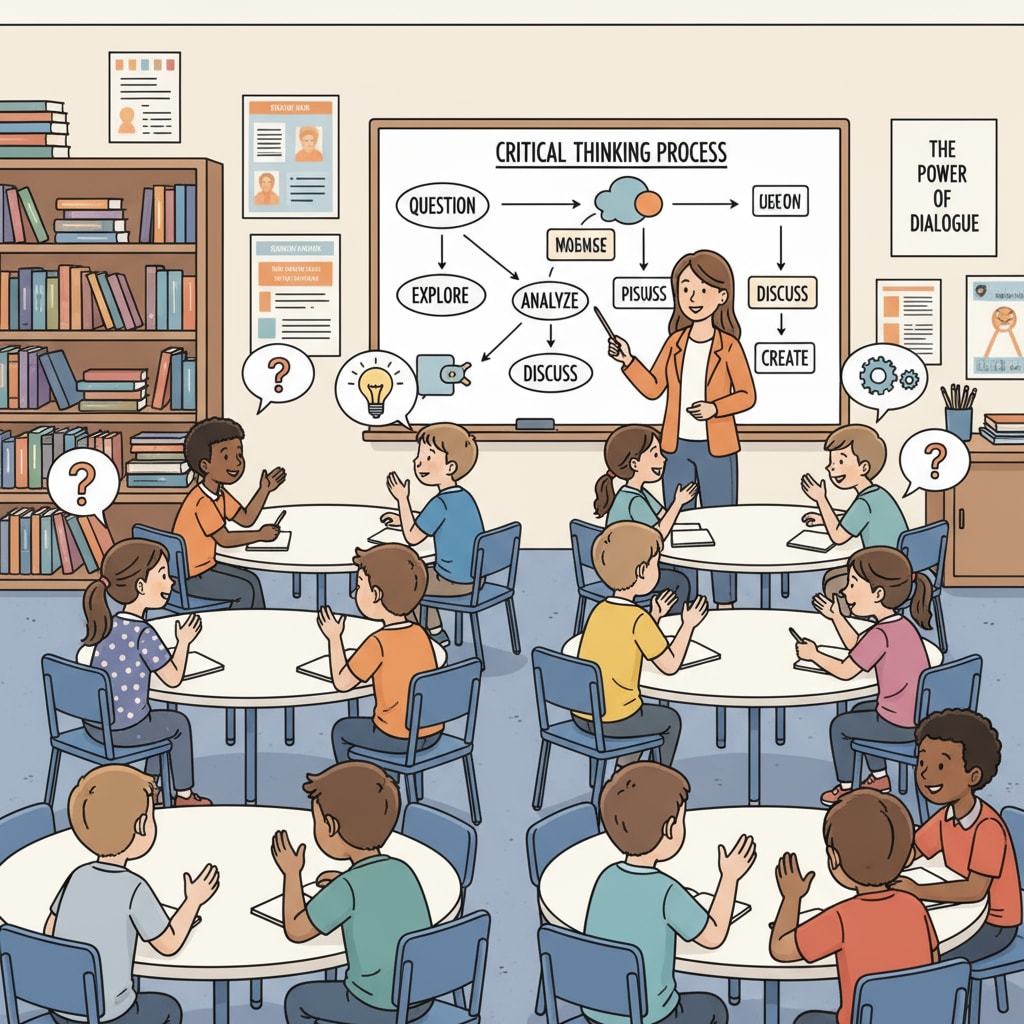In the digital era, K12 students are grappling with significant challenges regarding their thinking abilities, often encountering cognitive difficulties and struggling to maintain concentration. The prevalence of digital distractions has led to a rise in shallow thinking, making it crucial to explore ways to restore and enhance deep thinking capabilities.

The Digital Dilemma Affecting Thinking
The digital age has brought about a plethora of distractions. Smartphones, social media, and endless online content are constantly vying for students’ attention. As a result, students find it hard to focus on complex tasks that require deep thinking. For example, research from Pew Research Center shows that a large portion of students are regularly interrupted by digital notifications, disrupting their thought processes. This constant interruption not only affects their ability to concentrate but also hinders the development of in-depth cognitive skills.
Environmental Optimization for Focus
Creating an environment conducive to deep thinking is essential. Schools and homes should strive to minimize distractions. A quiet study space with proper lighting and organization can significantly improve a student’s ability to focus. Additionally, setting clear rules regarding digital device usage during study time can help. For instance, designating specific periods for checking social media or limiting screen time can reduce distractions. According to American Psychological Association research, an optimized environment can enhance concentration and boost cognitive performance.

Cognitive Training Exercises
Engaging in cognitive training activities can be highly beneficial. Activities such as puzzles, reading complex literature, and participating in debate clubs can stimulate deep thinking. Puzzles require students to analyze, strategize, and solve problems, which sharpens their cognitive skills. Reading challenging books exposes them to different ideas and perspectives, fostering critical thinking. Debate clubs, on the other hand, encourage students to express and defend their viewpoints, enhancing their argumentative and logical thinking abilities.
In conclusion, restoring deep thinking abilities among K12 students requires a multi-faceted approach. By addressing the digital distractions, optimizing the environment, and engaging in cognitive training, we can help students overcome cognitive difficulties and improve their concentration. This, in turn, will lay a solid foundation for their lifelong learning and intellectual growth.
Readability guidance: Using short paragraphs and lists helps summarize key points. Each H2 section can include a list for better organization. Controlling the proportion of passive voice and long sentences, and adding transitional words throughout the text, such as however, therefore, in addition, for example, and as a result, enhances readability.


